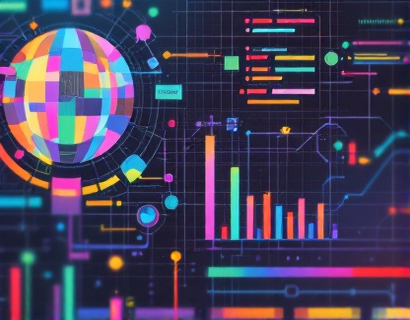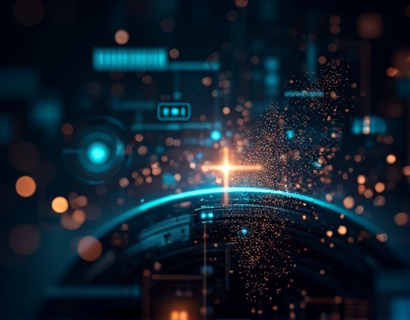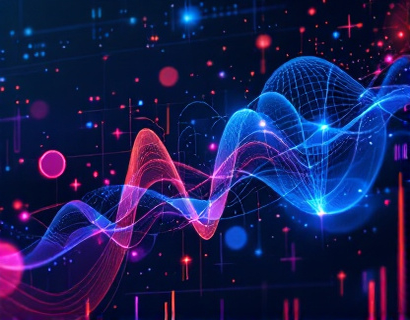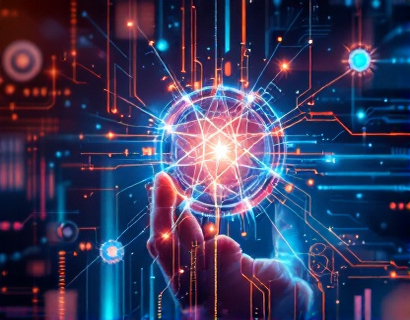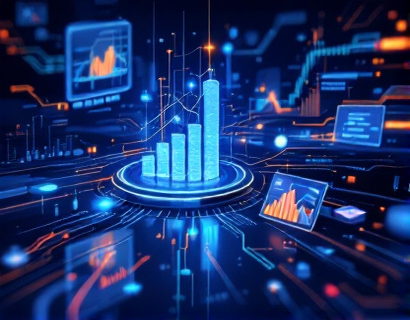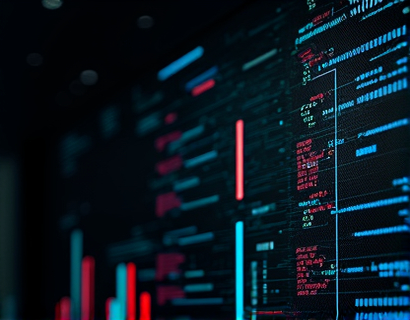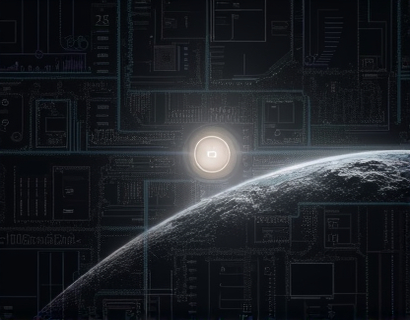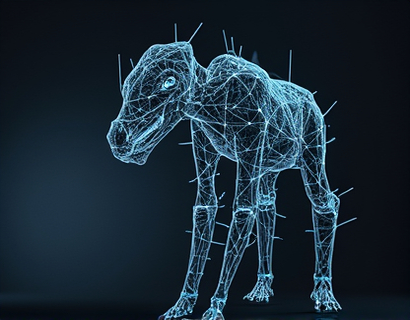Harnessing AI and Crypto: Revolutionizing Digital Solutions with Blockchain Technology
The intersection of artificial intelligence (AI), cryptocurrency, and blockchain technology is creating a new paradigm in digital solutions. This synergy is not only transforming how we interact with digital platforms but also enhancing the efficiency, security, and user experience of various applications. As technology continues to evolve, understanding the potential of this convergence is crucial for tech-savvy individuals and businesses alike. This article delves into the powerful combination of AI and blockchain, exploring how these technologies are revolutionizing the digital landscape.
The Foundations of Blockchain Technology
Blockchain technology, at its core, is a decentralized ledger that records transactions across multiple computers in such a way that the registered transactions cannot be altered retroactively. This technology ensures transparency, security, and immutability, making it an ideal foundation for various applications beyond cryptocurrencies. The decentralized nature of blockchain eliminates the need for intermediaries, reducing costs and increasing trust among users.
One of the key features of blockchain is its use of cryptographic algorithms to secure data. Each block in the chain contains a cryptographic hash of the previous block, a timestamp, and transaction data. This structure ensures that any attempt to alter a block would require changing all subsequent blocks, which is computationally infeasible. This inherent security makes blockchain an attractive solution for industries seeking robust and trustworthy systems.
Introducing Artificial Intelligence to the Blockchain Ecosystem
The integration of AI into the blockchain ecosystem brings a new level of sophistication and functionality. AI algorithms can analyze vast amounts of data stored on the blockchain, identifying patterns, predicting trends, and automating processes. This combination allows for the creation of smart contracts that are not only self-executing but also intelligent, capable of making decisions based on predefined conditions and real-time data.
For instance, AI-driven analytics on a blockchain platform can enhance fraud detection by continuously monitoring transactions and flagging suspicious activities. Machine learning models can be trained to recognize normal behavior and detect anomalies, providing a proactive approach to security. This synergy between AI and blockchain not only improves security but also enhances the overall efficiency of the system.
Enhancing User Experience through AI and Blockchain
The user experience is a critical aspect of any digital solution, and the combination of AI and blockchain is no exception. By leveraging AI, blockchain-based applications can offer personalized and intuitive interactions. For example, AI-powered chatbots can provide users with real-time assistance, answering queries and guiding them through complex processes. These chatbots can operate 24/7, ensuring that user support is always available.
Moreover, AI can optimize the user interface and experience by adapting to individual preferences and behaviors. Machine learning algorithms can analyze user interactions and tailor the application to meet specific needs, enhancing usability and satisfaction. This level of personalization is particularly valuable in financial services, where users expect a seamless and secure experience.
Smart Contracts and Automated Processes
Smart contracts are a prime example of how AI and blockchain can work together to revolutionize digital solutions. These self-executing contracts with the terms directly written into code can automate a wide range of processes, from financial transactions to supply chain management. AI enhances smart contracts by enabling them to make decisions based on complex conditions and real-time data.
For instance, in the insurance industry, AI-driven smart contracts can automatically process claims based on predefined criteria and data from IoT devices. This not only speeds up the claims process but also reduces the potential for human error and fraud. The automation and efficiency brought by AI-enhanced smart contracts can significantly reduce operational costs and improve service delivery.
Security and Privacy Enhancements
Security and privacy are paramount in the digital age, and the combination of AI and blockchain offers robust solutions. AI can continuously monitor blockchain networks for potential threats, using machine learning to identify and mitigate risks proactively. This constant vigilance helps in maintaining the integrity of the blockchain and protecting user data.
Additionally, AI can enhance privacy by implementing advanced encryption techniques and zero-knowledge proofs. These methods allow transactions to be verified without revealing sensitive information, ensuring that user data remains confidential. The integration of AI in blockchain security measures provides a dynamic and adaptive defense against emerging threats.
Case Studies and Real-World Applications
Several industries are already reaping the benefits of AI and blockchain integration. In the healthcare sector, blockchain-based platforms are using AI to manage patient data securely and efficiently. AI algorithms can analyze medical records to identify patterns and suggest personalized treatment plans, while blockchain ensures the data is tamper-proof and accessible only to authorized personnel.
In the supply chain industry, AI and blockchain are transforming traceability and transparency. Companies can use blockchain to track the movement of goods from origin to destination, with AI analyzing this data to optimize logistics and reduce delays. This not only improves efficiency but also enhances consumer trust by providing verifiable information about product origins and quality.
Challenges and Considerations
While the potential of AI and blockchain is vast, there are challenges that need to be addressed. One of the primary concerns is scalability. Blockchain networks, especially those using proof-of-work consensus mechanisms, can face performance issues as the number of transactions increases. AI can help optimize blockchain performance by predicting and managing network loads, but significant advancements are still needed.
Another challenge is the regulatory landscape. The intersection of AI and blockchain operates in a relatively uncharted territory, with varying regulations across different regions. Companies must navigate these regulations carefully to ensure compliance and avoid legal issues. Collaboration between technologists, policymakers, and industry stakeholders is essential to create a balanced and supportive regulatory environment.
Future Prospects and Innovations
The future of AI and blockchain is promising, with ongoing research and development pushing the boundaries of what is possible. One area of innovation is the development of decentralized AI models, where machine learning algorithms are trained and run on a blockchain network. This approach ensures that AI models are transparent, secure, and resistant to manipulation.
Another exciting development is the integration of AI with other blockchain-related technologies, such as decentralized finance (DeFi) and non-fungible tokens (NFTs). AI can enhance the functionality of DeFi platforms by providing sophisticated risk management tools and personalized financial advice. In the realm of NFTs, AI can create unique and dynamic digital assets that evolve over time, offering new forms of artistic expression and ownership.
As the technology matures, we can expect to see more seamless integrations and innovative applications. The synergy between AI and blockchain has the potential to redefine industries and create new opportunities, making it a field worth watching and exploring.
In conclusion, the combination of AI and blockchain is revolutionizing digital solutions by enhancing security, efficiency, and user experience. As these technologies continue to evolve, their impact will be felt across various sectors, from healthcare and finance to supply chain and entertainment. Embracing this synergy can lead to groundbreaking innovations that transform the way we interact with digital platforms.




